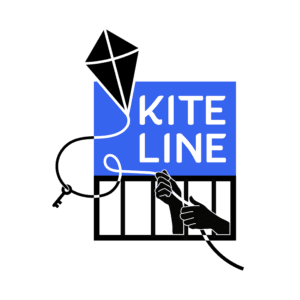This week, we cover carceral non-profits in an interview with Drs. Zhandarka Kurti, a professor of criminology and Criminal Justice at Loyola University Chicago, and Jarrod Shanahan, professor of criminal justice at Governors State University in Chicago.
Bella Bravo interviews Zhana and Jarrod, who are abolitionist scholars researching incarceration, and in recent years, their work has turned to the reconfiguration of the U.S. penal system as movements successfully delegitimate mass incarceration. They write that “Today we find ourselves in a unique moment of the penal crisis. Fear of crime does not register on a national level as it has in the past, at the exact moment the historic injustices of mass incarceration have become a matter of popular anger and disgust.” For example, “the conquest and burning of Minneapolis’s Third Precinct in response to the police murder of George Floyd was a profound act of abolition which established the political terrain on which the George Floyd Rebellion has unfolded since.”
But they warn that “this growing chorus to end mass incarceration consists not only of abolitionists but also liberals and some on the right. This conversation addresses the carceral non-profits who steer radical change towards liberal reform and the promotion of carceral expansion under the guise of decarceration.
These are not the small non-profits adjacent to the criminal justice system that assist prisoners and their families meet basic needs. Carceral nonprofits may support various reentry programs for incarcerated people, conduct research about the criminal justice system, advocate for and fund various policy changes, and lastly in moments of crisis emerge as powerful advocates for the carceral status quo. Carceral nonprofits are lobbyists and foundations like the Ford Foundation, state contractors redesigning jails, like the group Designing Justice + Designing Spaces, and even major private investors like Arnold Ventures. Foundations, as Ruth Wilson Gilmore puts it– are “twice-stolen wealth”.
“For abolitionists, campaigns for decarceration — or the reduction of the prison population — is an important first step in a vision that seeks to do away with the social ills the present criminal justice system simply manages.”
We will air the rest of their conversation next week.
This conversation builds on the previous Kite Line episodes:
- Our previous episodes with Maya Schenwar & Victoria Law, who wrote Prison by Any Other Name: The Harmful Consequences of Popular Reforms are here and here
- Our episodes with Judah Schept and Micol Seigel on jail expansion and their experiences with Decarcerate Monroe County are here, here and here.
If you would like to read more on this topic after the interview, Zhana and Jarrod’s related articles are “Rebranding Mass Incarceration: The Lippman Commission and Carceral Devolution in New York City,” which appeared in Social Justice in 2018, “Managing Urban Disorder In The 1960s: The New York City Model” on the Gotham Center for New York History’s blog in 2020, and “Carceral Non-Profits and the Limits of Prison Reform,” which is forthcoming from ACME: An international Journal of Critical Geographies. Their book States of Incarceration: Rebellion, Reform and the Future of America’s Punishment System is forthcoming from Reaction Books.
You can also check out the new podcast Campu, about Japanese American incarceration here.
You can also check out the new podcast Campu, about WWII Japanese-American incarceration here.
